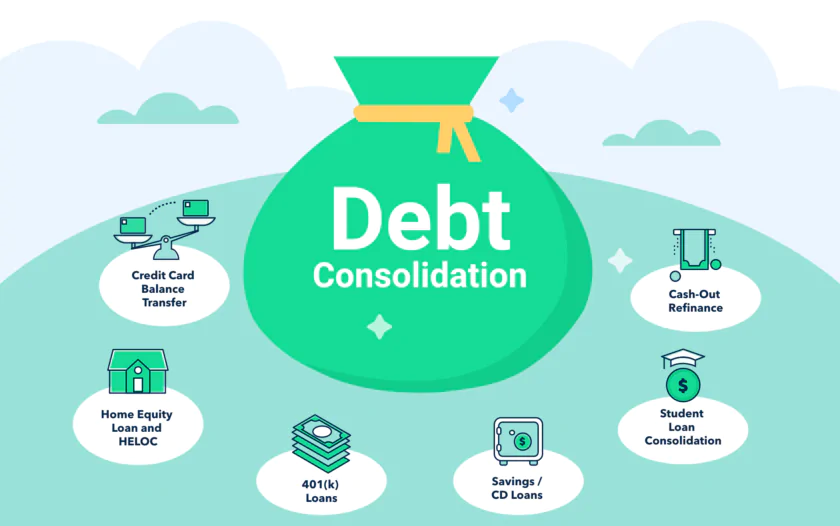It might be tough to keep track of payments and balances on existing obligations between credit cards, student loans, and automobile loans. Your finances may be simplified if you combine your debts under a single loan, but this technique is unlikely to address the fundamental causes of your financial problems. As a result, before taking out a new loan, consider the advantages and disadvantages of consolidating your debt.
We’ll go over the benefits and drawbacks of a Debt Consolidation Loan so you can make an informed decision about whether or not it’s good for you.
What Is Debt Consolidation, and How Do You Do It?
Consolidating various debts into one low-interest loan or credit card is debt consolidation.
With a personal loan, you can use the money to pay off all of your debts at once. You can consolidate your debt with most ordinary personal loans; however, some lenders provide specialized Debt Consolidation Loans. Additionally, some lenders take care of the repayments, while others let the borrower do so themselves.
Borrowers who qualify for a low introductory APR on a balance transfer credit card will typically have access to it for a term ranging from six months to two years. The borrower can transfer balances when they open the card or after it is issued.
Is Debt Consolidation a Smart Choice?
Borrowers who have multiple high-interest loans may benefit from debt consolidation. If your credit has improved after you applied for the original loans, you may be able to refinance. However, to qualify for a lower interest rate, you must have a high enough credit score; consolidating your bills may not be worth it.
When it comes to debt consolidation, you may want to reconsider if you haven’t dealt with the root causes of your indebtedness, such as overspending. It’s not an excuse to run up your credit card debt again, and it could lead to much more serious financial problems in the long term if you do.
Advantages of Debt Consolidation
You may be able to save money in the long run by consolidating your debts, as well as making your monthly payments easier to manage.
- Streamlines Finances – Debt consolidation is an excellent strategy to lessen the burden of your financial obligations. Debt-free living will give you a better sense of when all of your debts will be paid off. You’ll be less likely to be late on payments, which will help your credit.
- Rates of Interest Could Be Reduced – You can minimize your interest rate by consolidating various obligations with a single personal loan. A particular sort of debt is more costly than another because of its interest rates. Shop around and look for lenders who provide a prequalification process to ensure you get the most competitive interest rate.
- Can Boost Your Credit Rating – Consolidating your debts can positively impact your credit score in many ways. Your credit usage rate can be reduced by paying off revolving lines of credit. Your credit score can improve over time if you make on-time payments and pay off the debt.
- Payoff Timeline Can Be Accelerated –If your loans for debt consolidation are accruing less interest than the individual loans, consider making extra payments. You’ll save money in interest if you pay off the debt sooner rather than later; debt consolidation usually results in longer-term loans.












